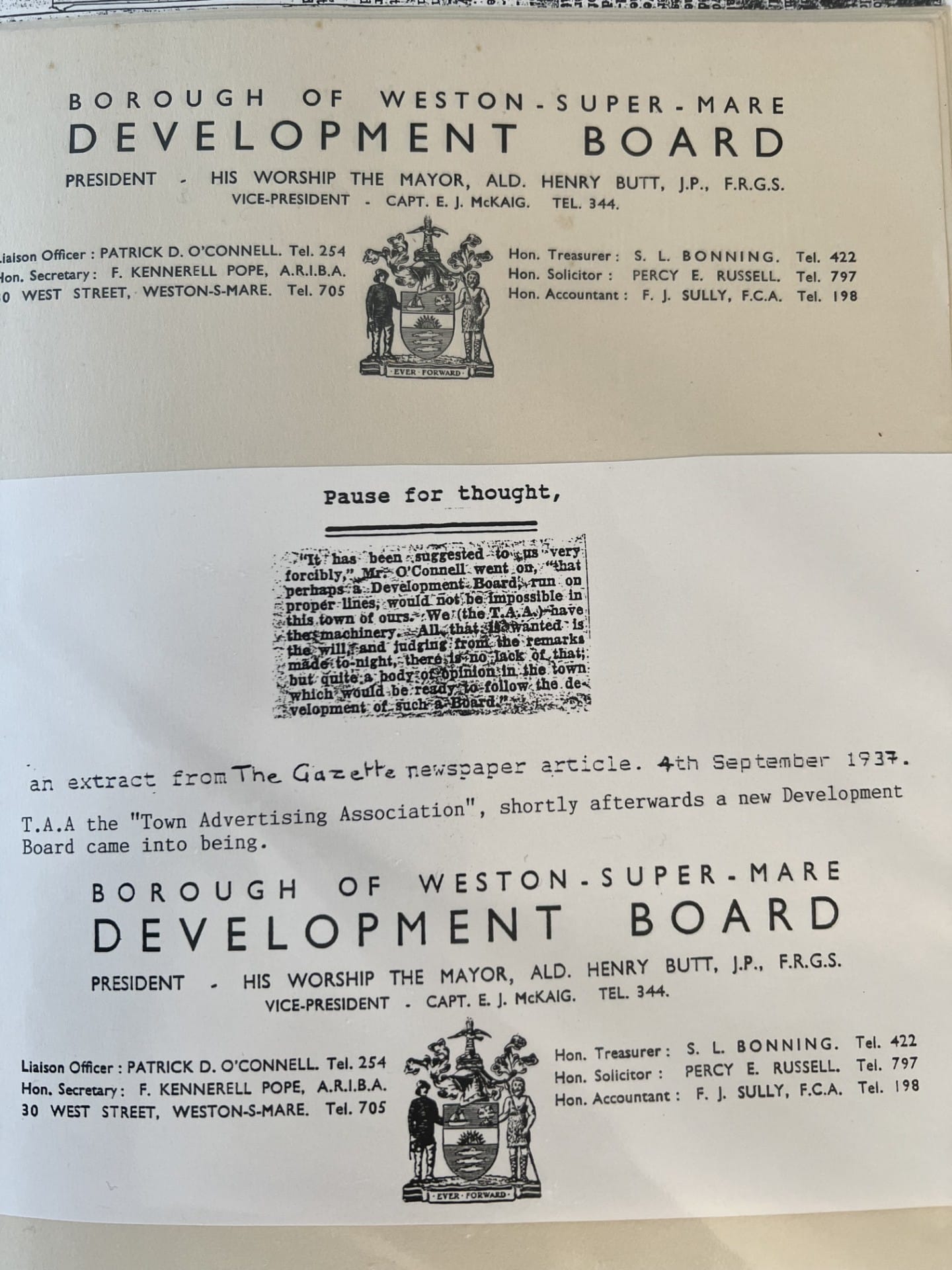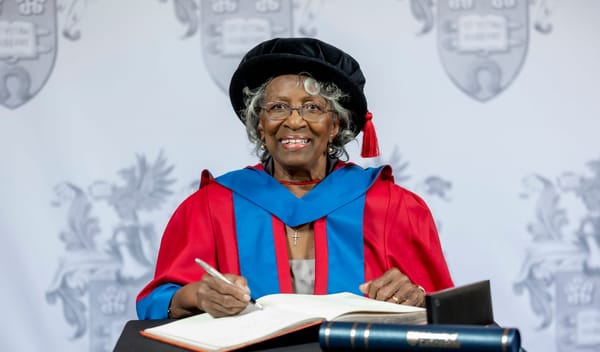Call for Blue Plaque for Weston’s Major PD O’ Connell and his selfless contribution to Weston’s history in the town's greatest time of need.

By Joshua Keyes, Jill Dando News Correspondent
Josh Keyes interviewed his great aunt Patrica O'Connell; she is the second eldest child of Major O’Connell.
Patricia recalled the night when the Weston family home was hit by incendiary bombs and high explosive bombs rained down on the town of Weston-super-Mare in the early hours for two nights in a row June 28-29 1942.
Patrica said “my worst memories are hearing the German aircraft approaching the town. The trobb sounds of the German bombers got louder and louder.
"The terrible sound of “take cover” sirens all over the town at 01.50am which gave a half hour warning before the second consecutive night of attack.
"We did not expect the Germans to return at a similar time a night later.”
The family home housed six children and her mother and father over 3 stories.
“I was 14 years of age in 1942 and will never forget the terror of those raids during World War Two. As well as the other occasions the town suffered from the German World War Two air raids.
"The first night the bombs were dropped just before the “take cover” sirens sounded. We ran down the stairs gripping our clothes and gathered in the dining room.
"We had a large table which we all took cover under. Both nights we had to leave our family home.
"The second night the bombs seems to be dropping and exploding all around us. The ground shook with the impacts.
"My little brother Hughie was expecting his 6th birthday and his presents were on top of that table we first sheltered under.
"We began to sing hymns and songs to try and drown out the terrifying sounds of the raid.
"I remember it was a very clear night sky. During the second of those night raids the roof of our house had several incendiaries hit it breaking through the roof and setting my oldest sister Maureen bedroom alight.
The day before she had bought a new unworn dress and placed it in her wardrobe.
Her room became charred and the wardrobe with her new dress in it completely destroyed.The house filled with burning smoke.
"My father Major P.D. O’Connell of the 8th Somerset Home Guard was out on patrol in the Weston area and he and an Airman friend put out the fire before it spread to the whole house.
"We had the bathtub filled full of water and several buckets full of water in the bathroom in case of any possible air raids which of course came unexpectedly during the June night.
"When my father knew we were safe he and the Airman continued helping others all across the town, all around us appeared to be set alight.
"He was on patrol throughout the war years and helped organise the town's safety from the moment war was declared.
"The Boulevard Congregational Church which was a few metres from our home was reduced to a complete burnt out shell.
"Once out of the house we took shelter but as we huddled we had to contend with machine-guns from attacking German aircraft.
"I will never forget those poor people who were not as fortunate as us.
"The all clear siren was a different sound to the take cover siren and came as a wonderful relief to us all.
"Even recalling those events in my late 90s it comes as a marvellous relief to talk about the all clear sirens.”

Josh added that his Grandmother Carmel was one of those 6 children in that family home aged 3 years old in 1942 her memories have not forgotten the sounds of those terrible war years.
Even remembering where she was standing opposite the bombed out Lance and Lance buildings at the top of the Weston high street as her father Major P.D O’Connell who also organised the VE and VJ Parades passed by in the first VE Day Parade held in Weston May 1945.

In 1945 Carmel, then aged six years old, remembers dancing around the Grove Park Bandstand after the thanksgiving service dispersed.





